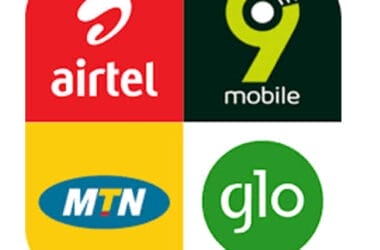Playing games in Africa is as old as the continent itself, so much so that there are various tournaments for indigenous games all over the continent. It’s no surprise that with the introduction of technology, the digital gaming fever would also take hold of Africans.
Africa has indeed been slower in the adoption of gaming compared to the other continents, mainly because gaming was restricted to those with disposable income for a long time. Over the years, tech companies have priced their products out of several markets. Nowadays, an entry-level home console is affordable for a middle-income family.
Africa, particularly South Africa and Nigeria, have become quite the playground for digital gaming. The African gaming market is predicted to grow by 100 million pounds in the next two years, which is quite conservative considering that the number of players has risen by more than 100% in the past five years.
iGaming
The most popular form of gaming is from home consoles and PC games, but with the evolution of cellphones and other handheld devices, iGaming has become just as popular. This includes casino apps as well as mobile casino sites. The advancement of technology has allowed gamers to access anything in the palm of their hand. You can check the latest casino sites in South Africa and worldwide.
Popular Games

One in every five cellphones has Candy Crush Saga or a variant of the game, and this game is at the top of casual log-in gaming. It is followed closely by Gardenscapes and a slots-based game Coin Master. Of course, PUBG and platforms like Gamefinity provide avid gamers with more challenging titles.
DOTA 2 and League of Legends are some of the staples globally, and in South Africa, it’s no different. No gamer can call themselves a real gamer without these and World of Warcraft in their gaming library.
Esports titles like FIFA 21 and Counter-Strike: Global Offensive are also a hit with esports athletes.
Rest of Africa
South Africa is not the only country that has experienced a boom in video gaming over the past few years. Nigeria, Kenya and Uganda have also seen a spike in the gaming industry.
The gaming industry has seen growth not only in the number of gamers but also in the number of gaming developers. Of course, the continent is not yet at the level of its American and European counterparts, but there has been a rise in local game developers. Studios like Free Lives and 24 Bit Games are going strong, with Senegal’s Kayfo Games also making impressive strides.
What is New
Usiku Games, a Kenyan-based gaming company, has taken gaming to a different level, where they incorporate social responsibility within their games. An example is a piloting game where the player flies a plane that drops seeds to plant trees. At the end of the game, you are given an option to turn all your successfully planted seeds into real trees by making a small donation.
Initiatives like the Africa Games Week in Cape Town every year are a great platform for new developers to showcase their talent. It also provides opportunities for developers to meet sponsors and their peers from the continent.
Kucheza gaming, one of the main players in development, is on a mission to groom the next generation of gaming developers and gamers by hosting School eSports Leagues where primary school kids can compete in games like Fortnite and Minecraft.
Esports
In the past two years, eSports have been trailblazing across the continent, from Kenya to Uganda, South Africa to Egypt. The most obvious reason would be the earning potential esports offer athletes. While the top players are in Asia and America, Africa has some of its stars making waves.
In South Africa, two of the highest-grossing esports athletes, JT, Sonic and Dethrony, have earned $120 000, $115 000 and $44 000, respectively. Interestingly, all three players have cashed their biggest cheques playing Counter-strike: Global Offensive.
18-year-old Thabo ‘yvng savage’ Moloi made history as the first African esports athlete to be sponsored by Red Bull. He is currently ranked 73rd in the world rankings. Now that is something.
Kenya has also produced a great player in the form of Sylvia Gathoni, better known as ‘Queen Arrow’, the first woman from East Africa to be sponsored by a global brand. She was also recently featured on Forbes Africa’s Top 30 under 30.
Final Thoughts
Gaming in Africa is growing rapidly; even though there are still hurdles like poor infrastructure and lack of sponsorship. The fact that international tech companies are investing in African countries is a positive sign for the future of gaming.
As an Amazon Associate, TechCity may earn a small commission if you shop these products.
















